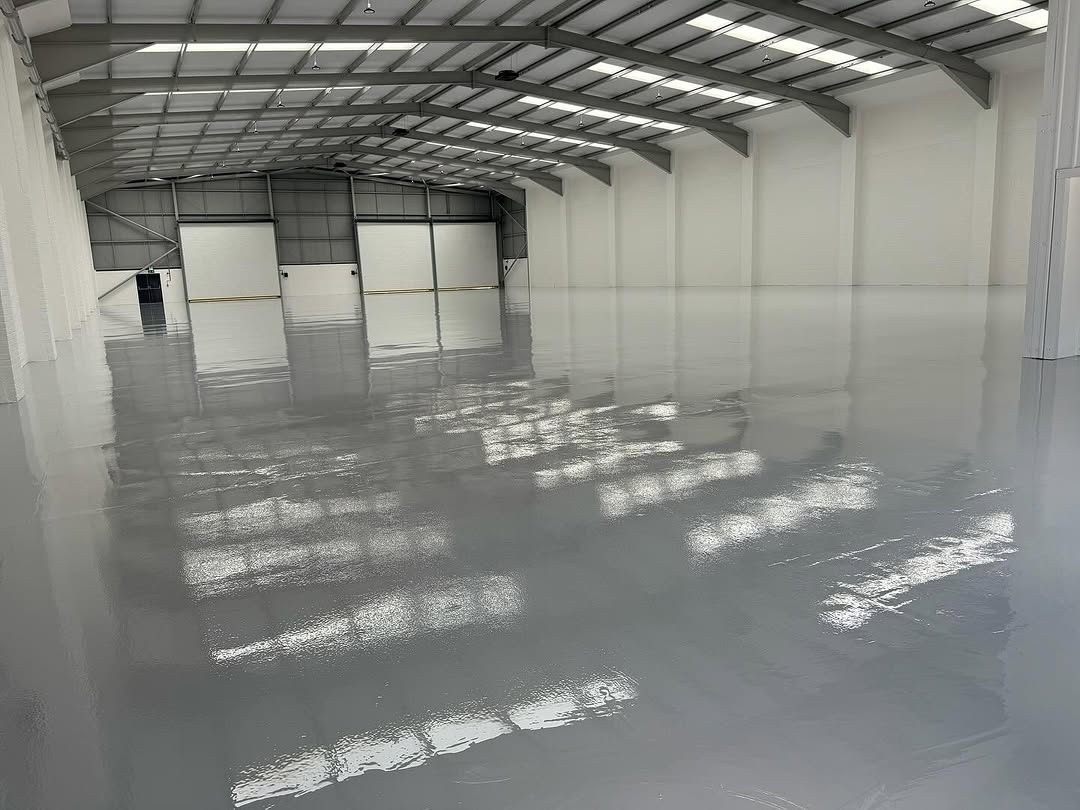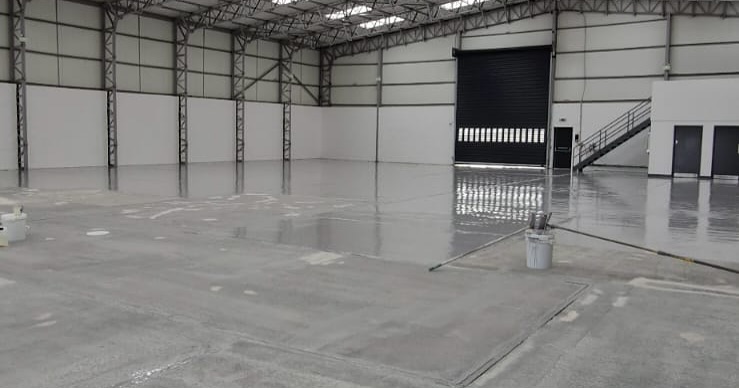MMA (Methyl Methacrylate) flooring cures in 1-2 hours even at -30°C, allowing immediate return to service, but costs £11-15 per m² with strong odours during installation. Epoxy takes 24-72 hours to cure, costs £11-15 per m², and offers superior long-term durability with minimal odour, making it better for most industrial applications unless rapid installation is critical.
When downtime costs thousands per hour, the choice between epoxy and MMA flooring becomes critical. While MMA resin systems promise rapid return to service, the reality involves trade-offs that aren't always apparent in sales literature. Having installed both systems in time-critical environments across London, we'll explain when speed justifies the premium and when patience pays dividends.
The Reality of Cure Time Differences
MMA's headline advantage is undeniable: full cure in 1-2 hours at 20°C, with foot traffic possible in 45 minutes. This ultra-rapid cure works even at -30°C, making MMA the only option for freezer installations without warming the space. Car park operators love MMA because sections can reopen within hours rather than days.
Standard epoxy requires 24 hours for foot traffic and 72 hours for vehicle traffic at 20°C. Below 10°C, epoxy won't cure properly without heating. However, this slower cure allows epoxy to flow and self-level, creating the glass-smooth finish impossible with fast-curing MMA.
| Temperature | MMA Cure Time | Epoxy Cure Time |
|---|---|---|
| -30°C | 2-3 hours | Won't cure |
| 0°C | 1.5-2 hours | Won't cure properly |
| 10°C | 1-1.5 hours | 48-72 hours |
| 20°C | 45-60 minutes | 24 hours |
| 30°C | 30-45 minutes | 16-20 hours |
Temperature Performance in Service
MMA maintains flexibility from -40°C to +60°C, crucial for external applications and cold stores. This flexibility prevents cracking from thermal cycling, making MMA ideal for multi-storey car parks where summer heat and winter frost create 50°C temperature swings.
Epoxy becomes brittle below 5°C and softens above 50°C. While this limits external use, epoxy's rigidity at normal temperatures provides better load distribution and wear resistance in climate-controlled warehouses. For standard warehouse flooring, epoxy's temperature range proves entirely adequate.

The Odour Problem Nobody Mentions
MMA releases intense methacrylate vapours during installation - think nail salon multiplied by 100. Even with extraction, the smell penetrates everything and lingers for days. We've had entire office buildings evacuated during MMA installations despite being three floors away from the work area.
Food facilities, hospitals, and occupied buildings often cannot tolerate MMA odours. The vapours can trigger asthma and headaches in sensitive individuals. While the cured floor is odourless and safe, installation requires careful planning and often weekend work to avoid occupant exposure.
Modern epoxy systems are virtually odourless, allowing installation in occupied facilities with minimal disruption. This makes epoxy essential for food processing flooring installations and healthcare flooring where operations cannot fully cease.
Need Fast-Track Flooring Installation?
We assess whether MMA's rapid cure justifies the premium for your specific downtime constraints. Expert advice on both systems available.
Discuss Your TimelineLong-Term Durability Comparison
Epoxy's densely cross-linked structure provides superior abrasion resistance, typically lasting 15-20 years in industrial environments. The hard surface resists scratching from pallet dragging and maintains its gloss level longer than MMA.
MMA flooring lasts 10-15 years, with its flexibility causing faster wear under abrasive conditions. However, MMA's elasticity prevents stress cracking that can plague epoxy in buildings with structural movement. For external applications exposed to weather, MMA often outlasts epoxy despite lower abrasion resistance.
True Cost Analysis Beyond Materials
| Cost Factor | Epoxy | MMA |
|---|---|---|
| Material cost per m² | £15-£11-15 per m² | £11-15 per m²-£11-15 per m² |
| Installation cost per m² | £5-£10 | £10-£15 |
| Total installed cost | £11-15 per m²-£11-15 per m² | £11-15 per m²-£11-15 per m² |
| Downtime cost (1000m²) | 3-5 days | 1 day |
| Odour management | Minimal | £2,000-£5,000 |
For a facility losing £10,000 per day in downtime, MMA's speed saves £11-15 per m²,000-£11-15 per m²,000 despite higher material costs. However, if installation can occur during planned maintenance or low-activity periods, epoxy's lower cost provides better value.
Application Process Differences
MMA's rapid cure creates application challenges. Once catalysed, installers have 15-20 minutes before the material becomes unworkable. This demands experienced crews working in coordinated teams. Any delays or mistakes cannot be corrected once curing begins.
Epoxy's longer working time allows careful attention to detail, better self-levelling, and correction of imperfections. Less experienced crews can achieve professional results with epoxy, while MMA demands specialist installers commanding premium rates.

Substrate Movement and Building Flex
MMA's flexibility accommodates substrate movement better than rigid epoxy. In multi-storey car parks with post-tensioned concrete decks, MMA prevents the reflective cracking common with epoxy systems. This flexibility also handles vibration from machinery without developing stress fractures.
However, epoxy bonds more strongly to concrete substrates - typically 2.5-3 MPa tensile strength versus MMA's 1.5-2 MPa. In stable substrates, this superior adhesion provides longer service life and better resistance to delamination under heavy loads.
Making the Right Choice for Your Facility
Choose MMA when:
- Downtime costs exceed £5,000 per day
- Installation temperature below 10°C
- External areas with extreme temperature swings
- Multi-storey car parks with deck movement
- Weekend installation windows only
Choose epoxy when:
- Planning allows 3-5 day installation
- Smooth, aesthetic finish required
- Budget constraints exist
- Occupied building sensitive to odours
- Maximum durability needed
Consider hybrid approaches: epoxy for general areas with MMA in critical zones requiring rapid turnaround. This optimises both cost and operational efficiency.
For extreme chemical exposure, explore our chemical resistance guide. For other rapid-cure options, see our comparison of epoxy versus polyaspartic coatings.
Get Expert Flooring Recommendations
Every facility has unique requirements. We'll analyse your operational constraints and recommend the most cost-effective solution - MMA, epoxy, or hybrid.
Request Your Free Analysis